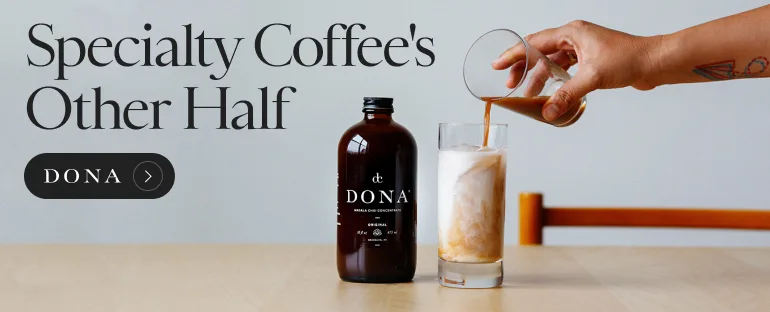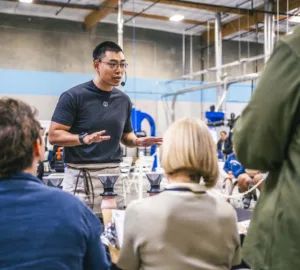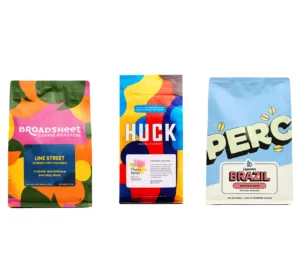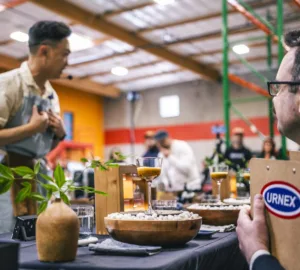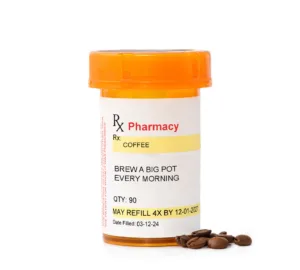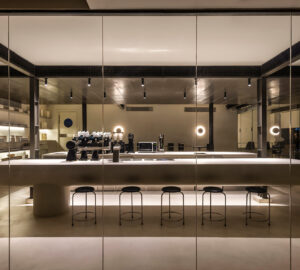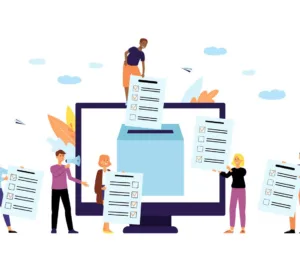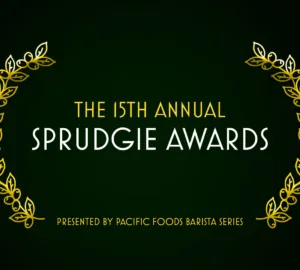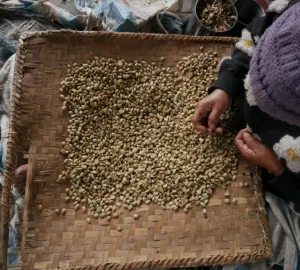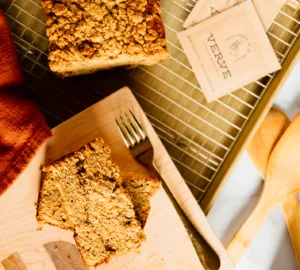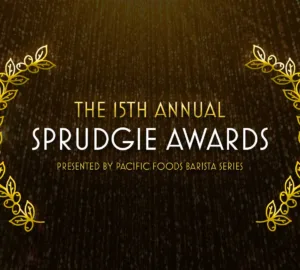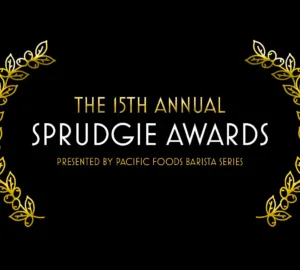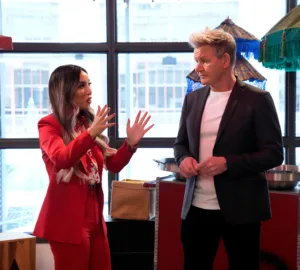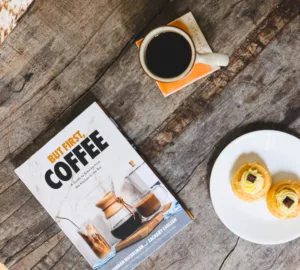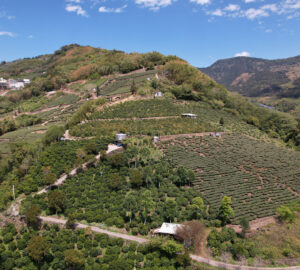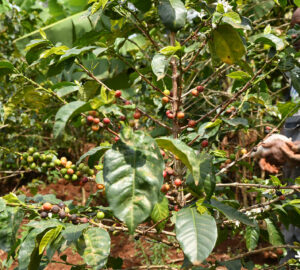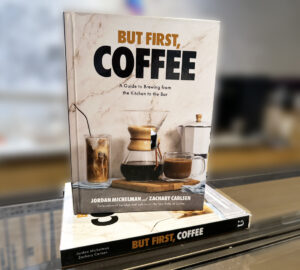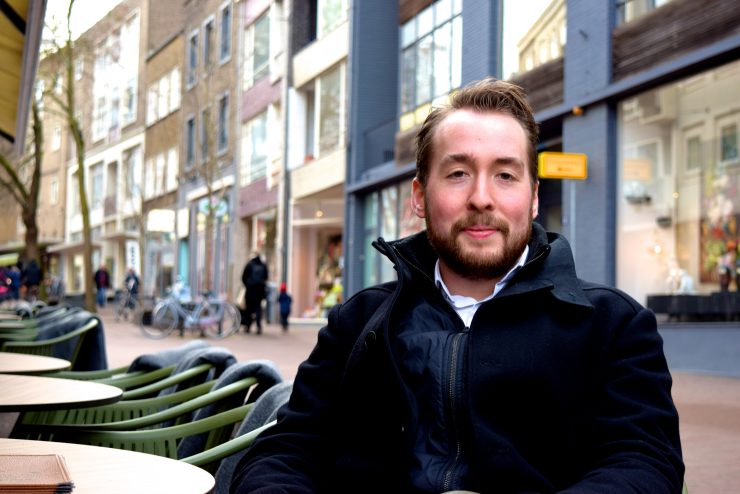
Meet Ilja Croijmans, a Dutch scholar doing pioneering research into the language that humans use to describe smells and tastes. People in the business of beverages and, for that matter, anyone who is fastidious about flavor will be intrigued by his findings, which are summarized in his report “Odor Naming Is Difficult, Even For Wine And Coffee Experts.” Croijmans, who is completing a Ph.D. at the Centre for Language Studies at Radboud University Nijmegen, published the 2015 article with Asifa Majid, his university mentor and an affiliated principal investigator with the Max Planck Institute for Psycholinguistics.
But take note, Team Coffee, the research revealed that wine experts were more consistent in describing the wines they tasted than coffee experts were with coffees. And Speciality Coffee Association of Europe-trained professionals were about as consistent in their coffee judgments as laypeople. Say whaaa? Excusez-moi? Sprudge lobbed such protests (along with more scientific questions) at Croijmans—himself a Scotch whisky fan known to brew sour stout at home and keep an AeroPress at work.
In the article, you say that articulating odors is a challenge for speakers from “WEIRD”–that is, Western, Educated, Industrialized, Rich, and Democratic–cultures compared to some others. Why is that?
One possibility we investigated is that this is because WEIRD cultures don’t have the words to talk about smell. For example, the Jahai, a hunter-gatherer community in Thailand, have about 12 words for smells that can be compared to our words for colors. Those words are short, abstract, used very often, and can be applied to many different smells. For example, “the smell of bat droppings, smoke, ginger root, and petroleum are all described with the word cŋɛs,” as found by another cited study in the article. But in WEIRD cultures, we don’t have a vocabulary for smells like the Jahai, so we come up with other strategies. When we describe smells, we often use comparisons or references to source terms, for example “tastes like chicken” or “smells like flowers.” This might be part of the explanation: We don’t have the words to specifically talk about smells.
Another possibility is that we just don’t get enough practice describing smells in our daily lives. This is why odor and flavor experts are so interesting: They get plenty of practice putting their sensory perceptions into words.
In view of this cultural discrepancy, you conducted a study to see if the specialized training that flavor experts from WEIRD cultures undergo could make them better at naming smells than laypeople. What did you find?
We asked wine experts, coffee experts, and laypeople to describe the smell and the flavor of different wines and different coffees as well as more “simple” smells, like lemon and cinnamon, and tastes, [like] sweet, sour, bitter, and salty. Then we looked at how consistent they were—that is, how many of the same words the different experts mentioned for the same coffee or wine. What we found surprised us: Only wine experts were more consistent in describing smells and flavors—but only smells and flavors of wines, not of coffees or the other smells and tastes. However, the same finding did not hold true for coffee experts and their consistency in naming smells and flavors of coffee.
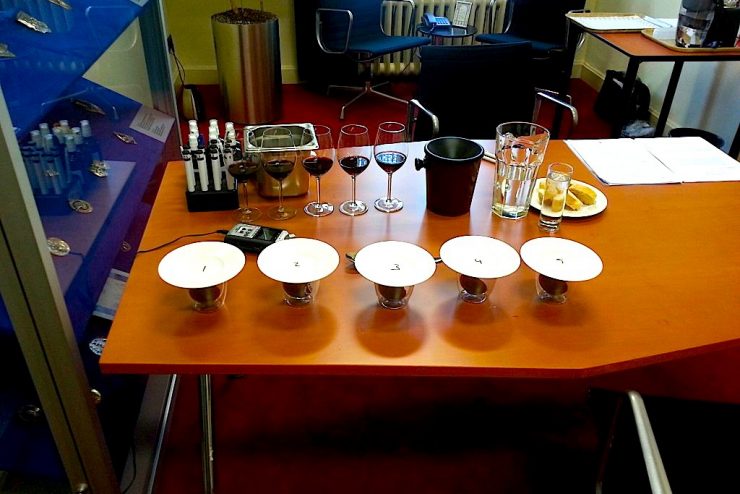
You had 22 wine professionals (each holding a WSET Level 3 Award), 20 coffee professionals (holding an SCAE Diploma), and 21 laypeople come to Nijmegen. Can you describe the methodology used to test their coffee palates?
I prepared five different coffees for each participant by grinding the coffee very shortly before the experiment and preparing it in the same way you would when cupping coffee. I asked the participants to smell each coffee, describe the smell, then taste the coffee, and describe the flavor. Importantly, I instructed all participants, including the wine experts and laypeople, to slurp! This is something that comes naturally to coffee experts because it is important for the flavor of coffee but is not so natural for laypeople.
What was most important for us was that the coffees were distinct—for example, using a Brazilian and an Ethiopian, both of which have very distinct flavors. We expected this to provide enough opportunity for participants to say interesting things about the smell and the flavor of each coffee. In addition, the coffee had to taste the same on each day, so I would carefully monitor the temperature of the water because this influences taste. We used coffee roasted in exactly the same way for each participant, from the same batch of beans. To achieve this, we worked with coffee roaster Björn Aarts. Also important was for the differences between coffees to be somewhat comparable to the differences between wines. We did this by looking for parallels between coffee and wine production; different grape varieties parallel different coffee varieties, and we used both wines and coffees from different origins and continents.
And how do coffee experts compare to wine experts?
Interestingly, coffee experts did not agree on coffee smells and flavors the way wine experts agreed on wine smells and flavors. In terms of this agreement, coffee experts were more comparable to laypeople. What we did find is that coffee experts use significantly more concrete source terms, like “fruit” or “peanut,” than laypeople, and fewer evaluative terms like “nice” or “disgusting.”
What accounts for the differences?
One hypothesis is that wine language is much more incorporated in our culture. You find wine descriptions everywhere, but not coffee descriptions. It could be that wine experts get more opportunities to talk about wine. With current developments in the coffee industry, with more and more coffee descriptions everywhere, it’s interesting to keep track of the developments. Perhaps once coffee language is more engrained in our culture, like wine language, we can repeat the experiment to see if the coffee experts have “caught up!”
And the differences between professionals and laypeople?
Overall, you see that experts use much less evaluative descriptions than laypeople. For laypeople, the fact that something tastes good or bad is incredibly important, but this seems less important for experts; they judge it based on the different flavors, whether there is balance, et cetera.
What implications does your research have for coffee professionals?
It is extremely hard to improve your sense of smell or taste in terms of sensitivity, but it seems possible to become more sensitive to particular smells if you train enough. For example, think of a specific coffee fault that you could train your sensitivity for by smelling over and over again. The research isn’t very conclusive, but it seems you can become more sensitive through training, though this is restricted to that specific smell. I can offer a wine example because this is what most research has been done on: Wine experts seem to be able to become more sensitive to this thing called “ladybug taint,” the smell that wine gets when ladybugs contaminate the grape juice during fermentation. Wine experts are more sensitive to that smell—they actually seem to smell it better than laypeople.
In terms of language, we show a somewhat similar picture. It is important to practice your language by talking to other people about the smell and the flavor of coffee. Take every opportunity to talk about what you smell and taste. If our hypothesis is true, this will improve your ability to describe coffee, and that would make the entire expert community agree more on the language of coffee.
What might this mean for everyday coffee drinkers?
If all coffee experts agree on how to name flavors and smells of coffee, drinkers might benefit because they could more easily learn what they like in a coffee. It would then matter less which barista you went to for your espresso because they would all speak the same “coffee language,” and be able to explain in the same terms how their coffees taste. So this would improve consumer-directed language, and the consumer’s expectations would be better met. Having a consistent vocabulary further professionalizes the field, too. Ultimately, coffee drinkers would benefit in every way.
So what comes next to further this research?
I already hinted at this, but it would be interesting to see what happens in 10 years in the field of coffee, and then repeat this study! Coffee and coffee expertise is a topic that deserves much more attention in the same way wine and wine expertise already receives attention from the scientific community. Besides the parallels between coffee and wine, there are also marked differences between the two beverages and expertise types—these differences alone deserve research.
Read more about Ilja Croijmans here and follow him on Twitter.
Karina Hof is a Sprudge staff writer based in Amsterdam. Read more Karina Hof on Sprudge.













